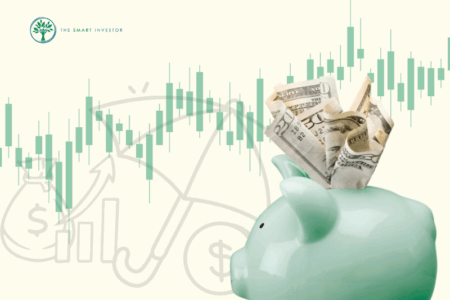How does someone become fabulously rich? I suppose some people become rich because they inherited wealth. Others become rich because they were in the right place at the right time. Then again, some become rich just because they struck it lucky. Anyone for 4D?
The truth is: We can all become wealthier if we follow a few basic rules about money that have stood the test of time. We don’t necessarily have to inherit it or be lucky. We just need a bit of grit and determination.
Cash versus shares
From a historical perspective, investing in shares has beaten the returns from cash or bonds. Let’s say we can achieve a nominal return from the stock market of around 8 per cent a year. That may not seem like much, but believe me, it is. For a start, it is better than the long-term returns we would expect from risk-free investments.
Don’t get me wrong. Cash and near-cash instruments such as bonds are all fine if we want a return of capital rather than a return on capital. In times of uncertainty, it can be very reassuring to know that our money is safe. But safety comes with a price. And that price is lower returns over the long run.
For some people who are close to or already in retirement, allocating more of their savings to less risky investments could be sensible. But that may not be true for investors who measure their investing horizon in decades rather than years.
Consequently, to fully exploit the returns from the stock market, it is important to start investing as early as possible. In other words, we should start investing today (if we haven’t already), rather than wait until tomorrow. That’s because every day that we delay is another day that we waste by not being in the market.
It is really quite simple. Let’s say we want to amass $1 million by the time we are 50 years of age. How do you go about doing that? If an investor who is 18 today wants to achieve that million-dollar goal, then he or she needs to invest around $560 a month for the next 32 years.
But if that person should wait until he is 30, then he would need to invest over three times as much. In other words, he needs to invest $1,700 a month for 20 years.
So, in the case of the 18-year-old, a total of $216,500 would need to be invested over 32 years to achieve the $1 million target. But if he waits until 30, then he would need to invest a total of $407,500, or nearly twice as much, to achieve the same result.
Magic of compounding
The reason for the massive difference is compound returns, which is often shortened to just compounding. Quite simply, when we compound, we are using the returns that we earn from an investment to reinvest to make even more money.
Consider this simple poser. If we were offered the choice of $1 million today or one cent that doubles every day for 30 days, which would we choose?
I suspect most of us would take $1 million today. And why shouldn’t we? But by doing so, we would forgo another $4 million because the one-cent option would have ballooned to almost $5.4 million after just one month through compounding.
Of course, stock investments do not double in value every day. But the point is that compounding can be a powerful tool if we use it properly. That is why it is imperative to always stay invested, regardless of what happens inside or outside the stock market.
Free lunches do exist
Almost as important as staying invested is to keep down trading costs by trading less frequently. Every time we buy and sell shares, we incur costs. These include brokerage fees, stamp duty and dealing spread, which is the difference between the buying and selling prices of shares.
There is not a lot that we can do about dealing spreads, but we can control other costs by carefully selecting good shares that we should buy only if we intend to hold them for the long term. In my case, it is forever.
I often joke that some of the shares I own have been in my portfolio for so long that they have started to sprout whiskers, if not long beards. Some shares have been in my portfolio for a decade or more.
As far as I am concerned, I never buy on a whim, nor do I sell my shares without good reason. In fact, I rarely – if ever – sell my shares, and I certainly don’t sell simply because the market may be down or the company might be going through its natural business cycle.
I’ll leave you with a parting thought for 2024: Investing in shares is never about timing the market but rather, time in the market.
Note: An earlier version of this article appeared in The Business Times.
The best gift a responsible parent can give their child is a secure, comfortable financial future. And we found that dividend investing is one of the easiest and effortless methods to do it. Our latest FREE report reveals how you can do it, plus the 3 SGX stocks you can buy today to start future-proofing your child’s financial future. Click HERE to grab a copy of the guide.
Disclosure: David Kuo does not own shares in any of the companies mentioned.





